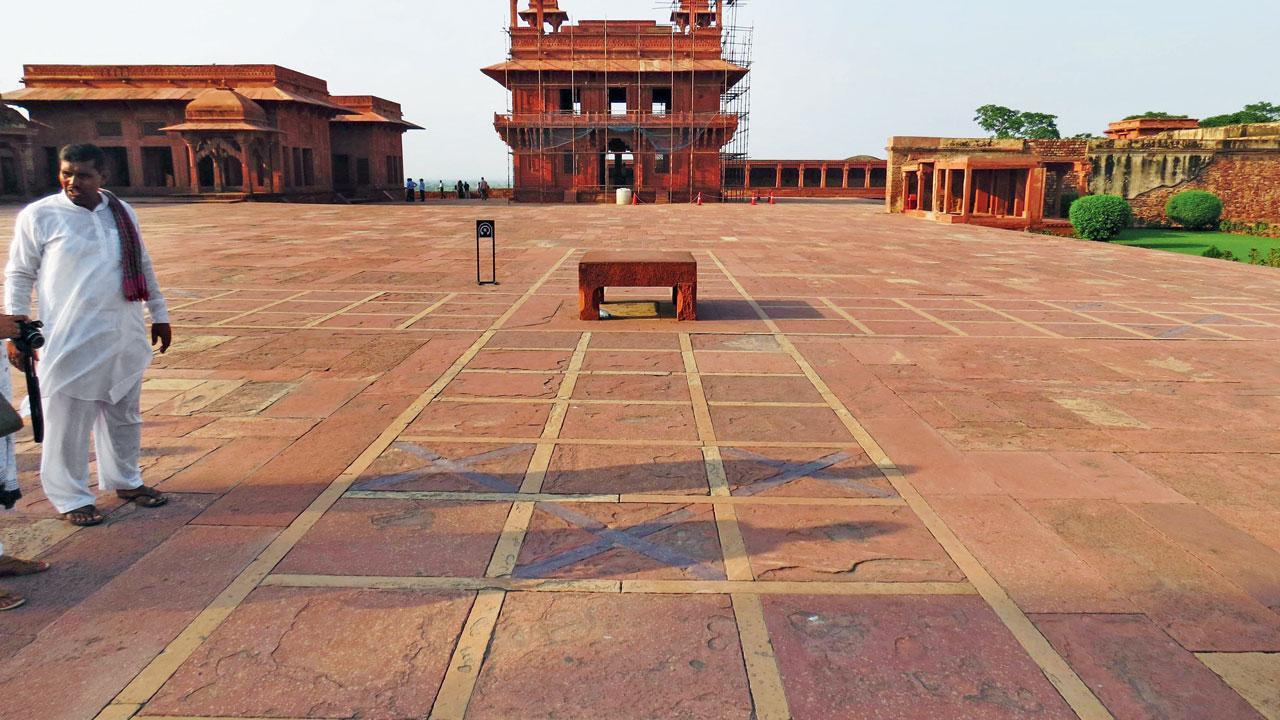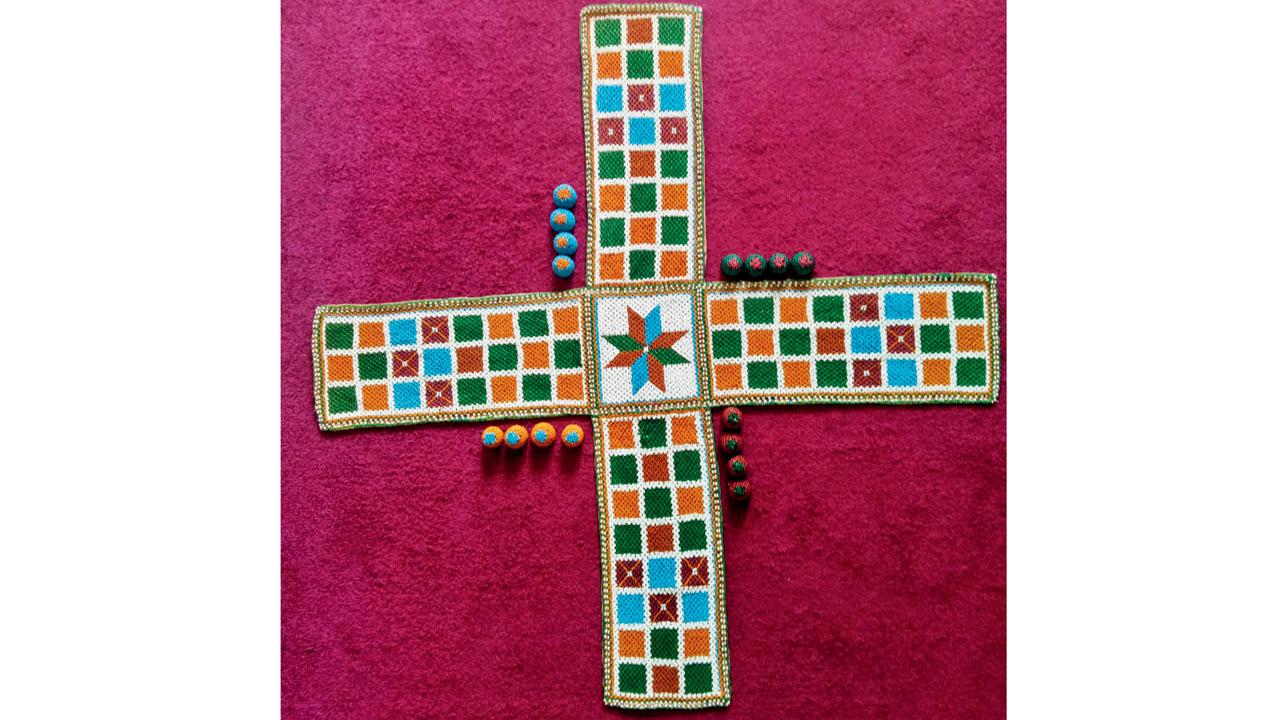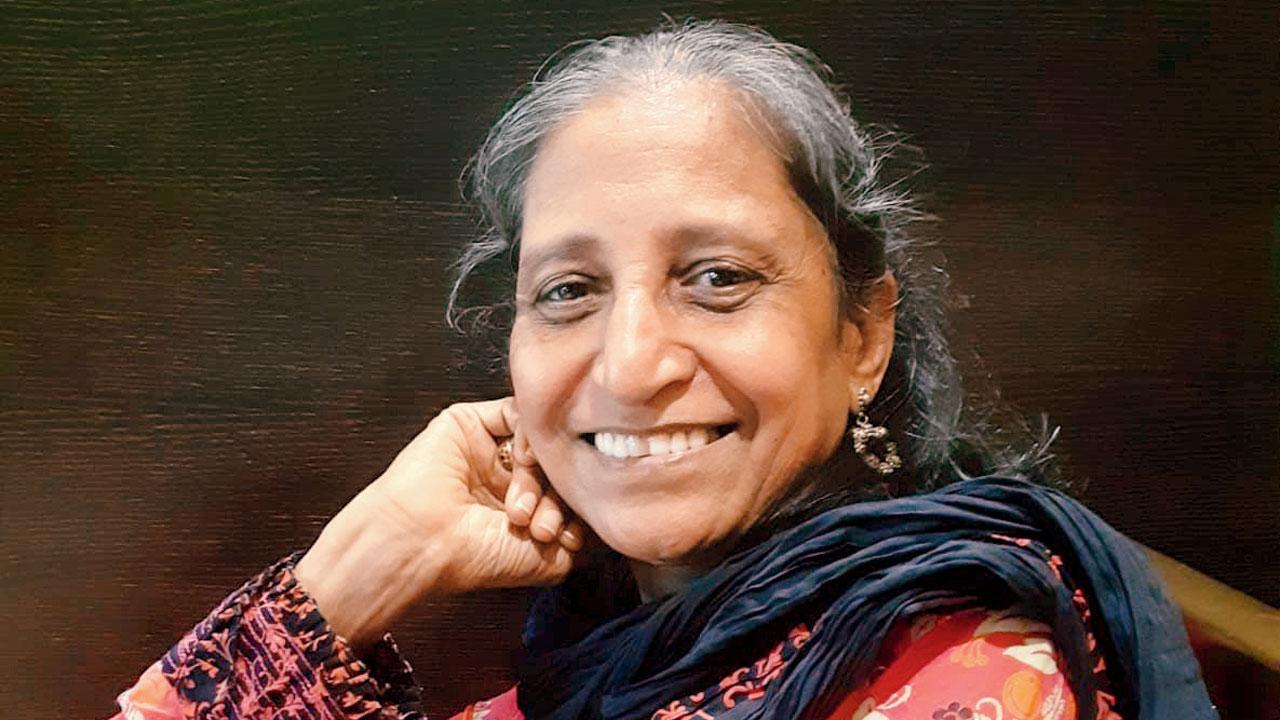Recently, Spain’s tennis champs, Rafael Nadal and Carlos Alcaraz caught everyone’s attention when they engaged in a game of Parchis at the Paris Olympics. Experts trace the Indian origins of this Spanish pastime

Emperor Akbar’s life-size Pachisi board in Fatehpur Sikri. Pic courtesy/Instagram
The Spanish, Raamesh Gowri Raghavan says, are obsessed with Parchís. It is no surprise then that in the recent viral photo from the Olympic Village in Paris, tennis champions Rafael Nadal and Carlos Alcaraz were seen engrossed in the board game. But if one were to turn back the clock, they would find themselves in the pages of the 7th century AD scripture Skanda Purana, where Lord Shiva invents the game and challenges his wife Parvati to a round of Pachisi, only to lose all his possessions to her, including Nandi.

Rafael Nadal and Carlos Alcaraz play Parchís. PIC COURTESY/ X (FORMERLY TWITTER)
“Parchís is a popular game in Spain, but reached them via the Arab rulers during the Medieval Age. The Arabs called the game ‘Barjis’, which was picked up from the popular Indian game, Pachisi, by the migrating Muslim traders,” shares Raghavan. The director of INSTUCEN Trust School of Languages and Literature, has no doubt that the game was invented in India. “There are many mythological stories that make references to Pachisi,” he explains, adding that the popular game, Ludo, too, is a simplified version of the game. “Mughal emperor Akbar loved to play this game. In fact, you can still find a life-size board built in Fatehpur Sikri, where Akbar would play the game with humans instead of pawns,” he reveals. With time, Indians shifted to Ludo, but Pachisi continues to thrive in its original form known by different names across continents. In America, too, they have a version called Parcheesi. They adapted it from the Latin Americans. “It is a shame that we are losing touch with our culture, and increasingly playing the British game, Ludo, instead,” he suggests.

Sidhant Chand and Raamesh Raghavan
Lead game designer and founder of Zenwood Games, Sidhant Chand admits that the game is not particularly preferred by the rapidly multiplying board gaming communities in urban India. “Pachisi has been popular since time immemorial in India. It used to be played by kings and commoners. While Ludo has taken over in towns and cities, one can still find people playing Pachisi in rural India. But it hasn’t been popularised yet in the modern age,” he says, adding that he finds the cultural connection between the design of the board game and the country particularly exciting. “While Ludo uses dice, Pachisi is played with cowrie shells. There are places in Odisha where cowries were used as currency. That’s also possibly where the phrase “do cowrie ka insaan” comes from,” he suggests. “Another interesting difference is that one can move up to six spaces in Ludo. But it can go all the way up to 25 in Pachisi — often rare, but that’s how researchers claim it got its name.”

Sophie Johari’s grandmother’s over 100-year-old board game
The major differences between Ludo and Pachisi are in the arms. “Pachisi has longer arms, and takes a while to complete. It is more complicated, and begins from the centre, unlike Ludo, where you start from the four corners,” Raghavan informs. The archaeologist writes off the claim that this was also the game played in The Mahabharata, “The game referred to in Mahabharata is Dyut, which means gambling in Sanskrit. So, it could be any game of gambling. This game, he adds, is commonly played across cultures of India. It is also called chaupar, among countless other names, and hundreds of variations that change with family rules. “It is popular during Diwali, Mahashivratri, and Ramadan,” he adds.
Handwoven treasures
Grant Road-based Sophie Johari from the Dawoodi Bohra community sells hand-woven chaupar, along with many other cultural Indian games. “I have crafted a handful of these games. I began in 2017, when I created a handwoven board game called Dadu. After a Facebook post, I got 15-20 orders the very next day,” she recalls.

One such order was placed for Chaupar. For this, Johari dug into her late grandmother’s belongings and discovered a handmade Chaupar. “It is the most precious piece of family heritage I own. Each time I am asked to weave a Chaupar board, I refer to this over 100-year-old piece,” she beams.
Log on to Sophie Johari on Facebook (to place order)
Also check out
APPS
>> Pachisi multiplayer
Log on to App Store
>> Parchisi STAR
Log on to Play Store
Buy the game
>> Chausar/Ludo (Etched on palm leaf, shells tied with threads for pawns, made by Odisha’s Pattachitra artisans)
Log on to zolaindia.com
>> Dhayam/Pachisi (Brass dice, Kondapalli bird pawns with a hand-painted board)
Email kritihandmade@gmail.com (for enquiries)
>> Pachisi (Hand-painted Kalamkari board) Log on to
@goodoldgames_vintagecrafts
>> Chopad pasa game (Foldable box game)
Log on to @royal.indian.art
 Subscribe today by clicking the link and stay updated with the latest news!" Click here!
Subscribe today by clicking the link and stay updated with the latest news!" Click here!








